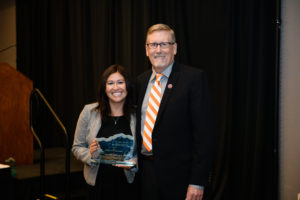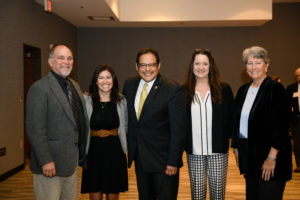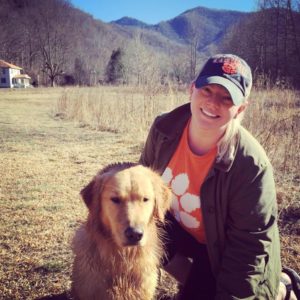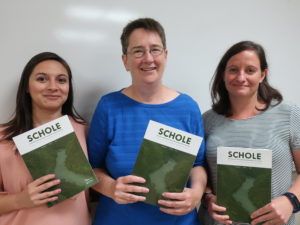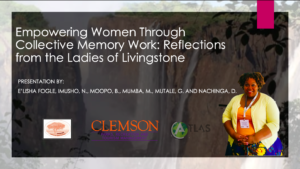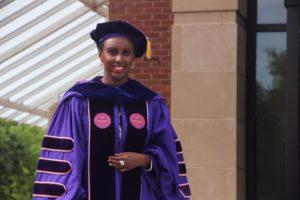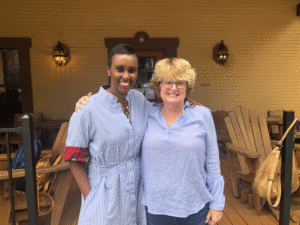“When you are a student in the PRTM Master’s program, you have me for life.”
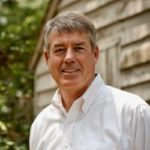
Over the past 40 years, Tom O’Rourke has spent every day of his working career in the management or administration of parks, recreation and tourism in the Charleston, South Carolina region. Between directing two large park systems and his service as a Board Member of the Charleston Convention and Visitors Bureau, he’s seen and managed it all.
Tom applies that on-the-ground knowledge and expertise to two classes in the Clemson University Master of Science in Parks, Recreation, and Tourism Management (PRTM) program: Innovative and Creative Funding Strategies in PRTM (PRTM 8210) and Enterprise Development in the Public and Nonprofit Sectors (PRTM 8240). He also provides strategic planning support to the department.
Tom recently answered a few questions for us about the program, his experiences in the community recreation field and the future of the profession.
Tell us a bit about what you see as your most significant contribution to the online MS program.
As Executive Director of the Charleston County Park and Recreation Commission I oversaw the agency through its most significant growth. What separated CCPRC’s growth from most others is that we accomplished this with very little reliance on tax subsidies. As our profession advances into the future, it is clear that we will need to create entrepreneurial opportunities and business management principles that will ensure its sustainability. My contribution to the master’s degree program is to work with the students and other faculty members to institute programs and services that can financially sustain themselves into the future.
What knowledge and skills do you feel are most important for our MS students to have in order to advance in the field?
The skills necessary to advance the field of parks, recreation and tourism into the future will be grounded in creativity. A department’s end goal of making communities and the people in them better doesn’t change. What will be completely different is how we do it. Graduates should leave our program understanding how to fund their parks and programs without relying on the government to fund their operations.
The future leaders in parks and recreation will be managing more than doing. Our students learn the contractual skills necessary to protect their community, while controlling the activities that take place in their department.
Our program also focuses on innovation. Government is changing, parks and recreation is changing, and so are people and society. Our students will learn through innovation the skills necessary to lead our profession into the future.
What do you enjoy most about teaching in the MS online program?
What I enjoy most is my relationship with the students. Most of our MS students are currently working in the field. The personal relationship I have with the students extends far beyond the learning outcomes of each class.
I want to be the type of professor that is always there for the students not only in class, but beyond the class and even after they graduate. Education does not stop after the student leaves Clemson. When they contact me, I don’t want to give answers, I want to ask questions so that the student can reach the answers themselves. When you are a student in the PRTM Master’s program, you have me for life.
What advice do you have for potential students who will be taking this program while working full-time?
I actually think it is better to enroll in the program while working full-time. The advantage is that you have faculty resources for the problems that you are undertaking at your immediate disposal.
Our current method of teaching is designed to consist of discussion topics and group work. This forces students to get to know each other. The other students provide a professional network that will last well beyond graduation. When we discuss current issues, students that are currently working full-time always offer the best and most current examples.
How is this program a good value for students? Or who do you think would benefit most from this credential in your field of expertise?
The knowledge gained in the MS program will benefit a student even if they choose to switch fields. Gaining knowledge in strategic planning, funding and working in political environments is essential, whatever you are doing. Most advanced senior management positions currently require a master’s degree. Having one with an emphasis in innovation, creativity and entrepreneurship separates our program from any other.
###
About the Master of Science in Parks, Recreation and Tourism Management
Clemson University is among the nation’s top universities in graduate education in the fields of parks, recreation, tourism and related disciplines. Research shows that the average annual salary of a person holding a M.S. in the PRTM field is $16,000 more annually or $480,000 more over a 30-year career. The top 25% of people in the field with a M.S. make $88,000 or more annually.
Students learn from a mix of leading university faculty and world-class practitioners and take 10 classes over two years (one class at a time), meeting online in the evening once a week with faculty and fellow graduate students – making sure you can continue to work full-time while earning your Master’s degree.
Visit Clemson Online to learn more about the MS Online (non-thesis) program in Parks, Recreation and Tourism Management, including how to apply for either a spring or fall program start.
